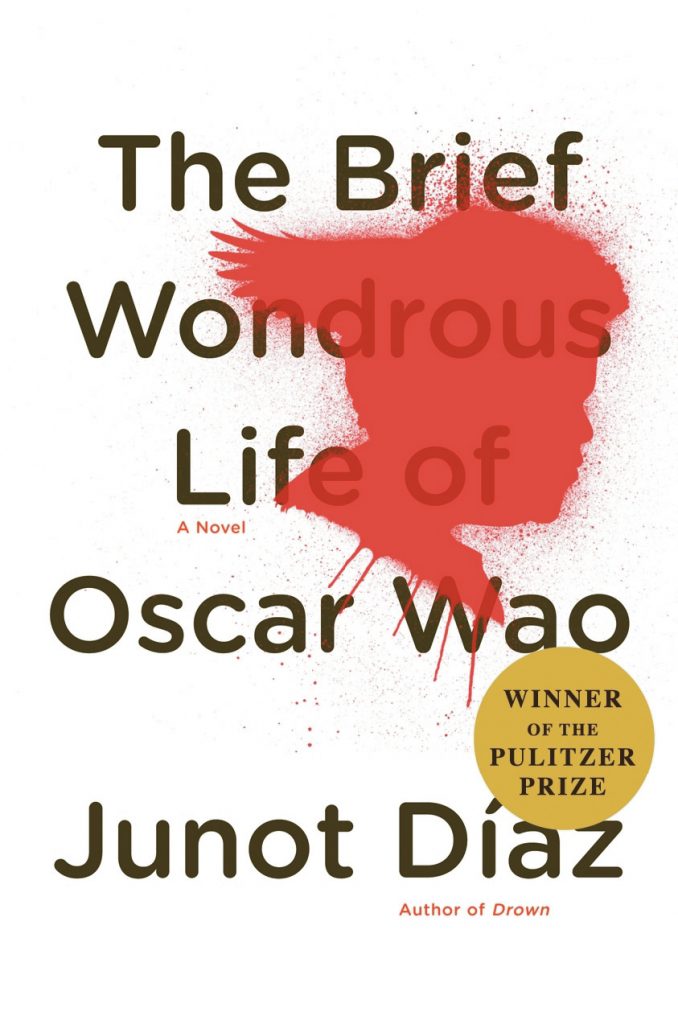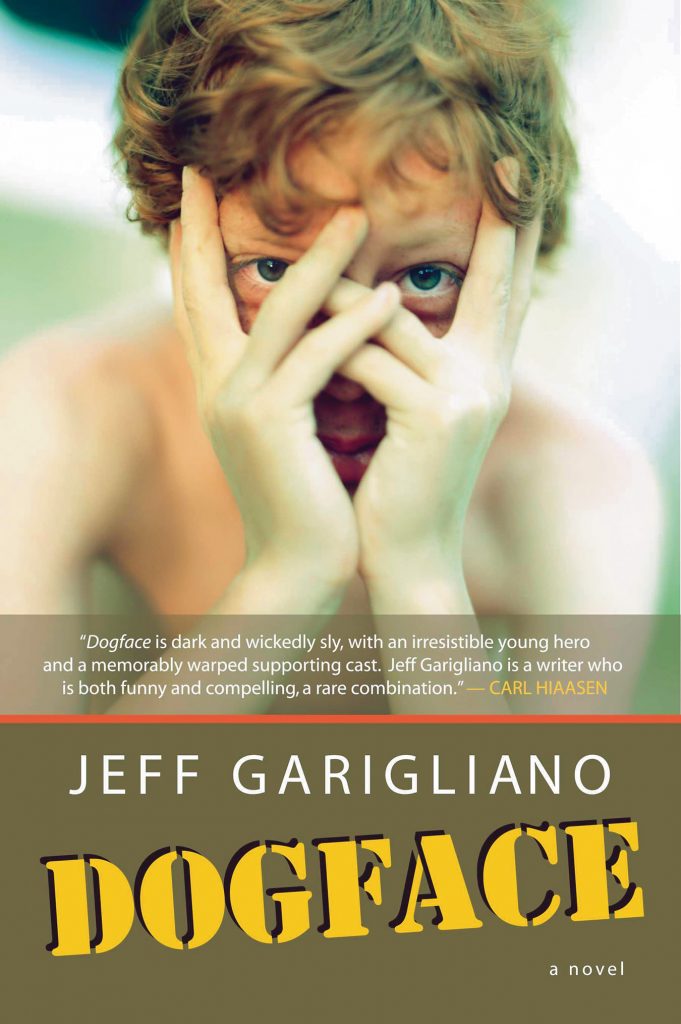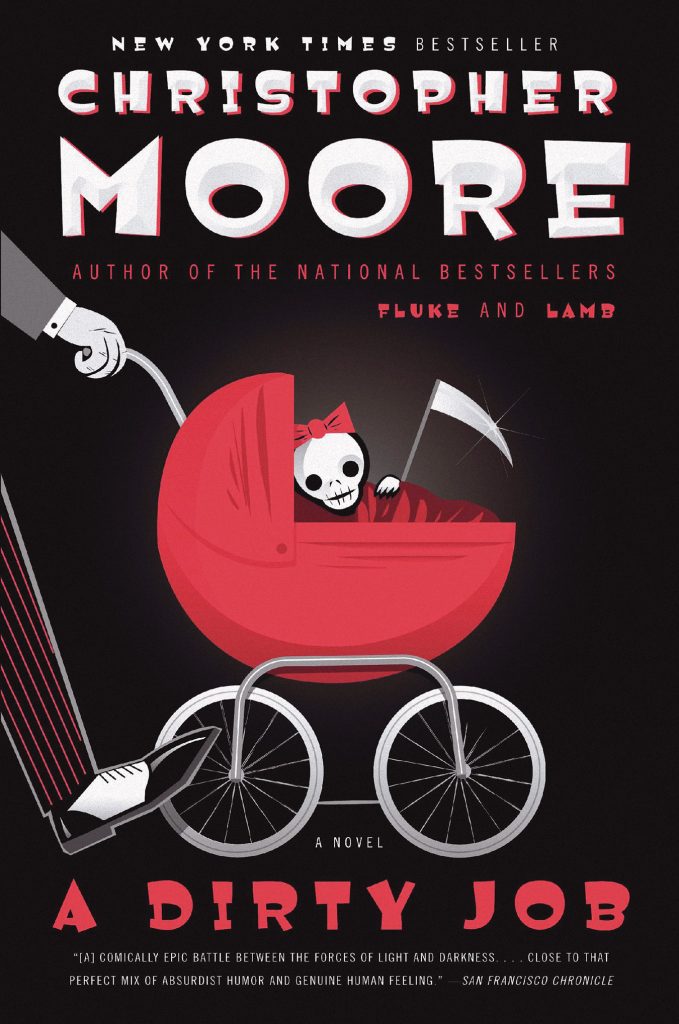The interplay between fate and character is manna for novelists and for readers. Is character fate? If so, can we change our character and therefore our fate? Or does fate wield the sculptor’s knife, carving out character as it goes?
In Junot Diaz’s Pulitzer Prize-winning debut novel The Brief Wondrous Life of Oscar Wao (Riverhead Books, 2007), we meet strange, broken-hearted Nerd King, Oscar de Leon, commonly known as Oscar Wao (Oscar Wilde in a Dominican accent) thanks to a misguided choice of Halloween costume. He’s one of those guys who uses a “lot of huge sounding nerd words like indefatigable and ubiquitous” in conversation with kids who barely finished high school. Oscar has all the standard obsessions of the nerd class: science fiction, fantasy, “Japanimation”, and comic books. He’s fat and shy and awkward and has the misfortune to be those things as a Dominican-American male growing up in New Jersey. The narrator informs us, “Oscar de Leon was not one of those Dominican cats everybody’s always going on about—he wasn’t no home-run hitter or fly bachatero, not a playboy.” It is Oscar’s harrowing relationship with love, with his family and with his Dominican identity that makes the heart of this novel throb like a syncopated bass line.
The title refers back to Hemingway’s “The Short Happy Life of Francis Macomber”, a story about a man who banishes his own cowardice and pays a terrible price. Oscar’s story echoes this reference. In addition, the novel explores the histories of three generations of Oscar’s family, all of whose fates have been twisted by a fukú, or curse, unleashed by the arrival of the Europeans on Hispaniola, and by the devastating legacy of the Trujillo dictatorship.
Rafael Trujillo, a serial rapist and stone psychopath, ruled the Dominican Republic for over thirty years. He turned the country into a society half crazed with fear. With dizzying facility Junot Diaz plays out the connections between Trujillo and Oscar’s mother, Oscar’s sister, his grandparents and of course Oscar and his tragic love life. The book is funny, it is awful and in places it is beautiful. It is like fate that way.
Which brings me to an altogether different book with a much more measured tone and quieter ambitions. Dogface (MacAdam/Cage, 2008) by Jeff Garigliano is another first novel. It employs coolly rational third-person narration to tell the story of how one boy’s obsession with all things military and self-sufficiency are his ticket out of a highly irrational situation.
Fourteen-year-old Loren makes a series of bad decisions aimed at ridding his mother of her latest boyfriend, a pastel-polo-shirt wearing golf pro. Loren’s efforts are magnificently pointless, not to mention unsuccessful, and he ends up being shipped off to a wilderness “boot camp” for troubled youth. Camp Ascend! (exclamation point intentional) is run by a professional con man who has figured out how to exploit the fact that many North American parents have no idea how to handle their kids. He’s in charge of generating new business and taking the money, in order to keep his severely tanned wife in lotion. That leaves his sadistic brother-in-law Donovan to run the camp’s programs. Dogface reminded me of some of Pat Conroy’s early novels, but without any of the emotional bombast. The tone walks a tightrope of restraint over a sea of absurdity. It is often hilarious and performs the near miracle of reburnishing the American military ideal as Loren fulfills what he sees as his fate, which is to transform himself into a soldier-hero.
And finally, I hope Christopher Moore is thanking the fates that his audio book producers had the great good taste to choose Fisher Stevens to read his work. A Dirty Job (HarperCollins, 2006) is the story of Charlie Asher, beta male, recently widowed single father, and purveyor of fine as well as not so fine used goods. He’s alarmed to discover that it is his fate to become a Death Merchant and, possibly, saviour of the world. A Dirty Job is overblown and willfully madcap. It is also packed with unforgettable characters, notably Lily (a.k.a. Darquewillow Elventhing), the laceratingly amusing goth girl, and the three harpy “Morrigan” who live in the sewers and make bitching amongst themselves a sort of art form. Moore’s books lend themselves well to the audio format and Fisher is a brilliant performer. If you can suspend disbelief for the first 15 minutes, your fate may be to fall in love.
Susan Juby’s latest novel, Getting the Girl, has been nominated for an Edgar Award.











